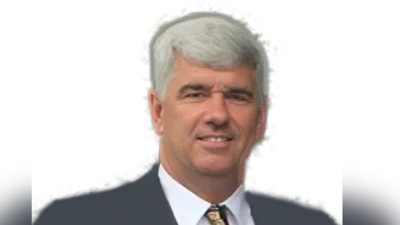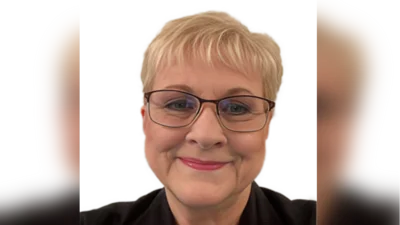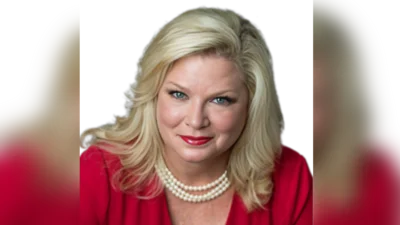Lovett School issued the following announcement on Dec. 2.
Pottery is something you would justifiably connect with art class, but for teacher Hope Myers it is something closely intertwined with history. While she has only been working at Lovett for five months, she has already made an impact with her “cross-curricular activities.”
So far this year Dr. Myers has already undertaken a few unusual projects, one being bread baking. In modern society most of us will never have to make our own bread. While Dr. Myers can tell her students about the process, “they haven’t experienced it yet.” Her students were able to mill their own (finely ground) grain with a manual machine and then make their own bread. Dr. Myers then illuminated the connection this had with the Jewish holiday of Passover.
Another project her class has done is the “fermentation project” How were sailors fed on ocean explorations? What tools and structures were involved? The first phase of this project was studying the different carrying objects brought on these voyages. The Polish sauerkraut crock and the Korean kimchi onggi, both common vessels for fermentation.
But what about the actual fermentation process? That’s where phase two comes in. Her students, guided by Chef Jess at the Lovett cafe, made their own sauerkraut and kimchi. Then a parent instructed them how to eat the two respectfully, like for example how do you use chopsticks, or how do you pass around the kimchi without “looking like a neanderthal.”
I spoke with one of her students, 10th grader Dorian Pinkston, about what she thinks of the class. “I like it, it’s really hands on and we bake a lot.” She feels it is an effective way to make ideas stick. “I feel like I remember the stuff we learn better.”
But how did Dr. Myers develop this unique style of teaching?
She was trained as a cultural historian at the University of Miami, and had a dream to become a history professor, which she imagined would involve sitting “in the leatherback chairs,” wearing tweed outfits, eating grapes and talking “about people that have been dead for centuries.”
Before Dr. Myers pursued a Ph.D. she was confronted by the harsh financial realities of this career path, which would mean being hundred of thousand dollars in debt. So instead Dr. Myers became a TA at the University of Miami teaching history to college freshmen.
Wanting to teach students who were academically focused, Dr. Myers began to teach high school because educators were so in demand in Florida. However, despite her knowledge of the subject Dr. Myers was still missing a teaching certificate so she earned one while teaching in a small private school.
During this time she also had to pick up a second job. “You start work at 6:30 and start grading at 6:30. I clocked out at 3:45 and clocked into my next job at four o'clock until midnight.” Discontented with her life, Dr. Myers transferred once again to a public magnet school. Here she was introduced to AP and IB programs. She was saddled with AP Economics and IB and AP Psychology, eventually switching over to history.
But unfortunately, the 2008 recession spelled the end of Dr. Myer’s time teaching in Florida. Offered a contract with an asterisk from her employer which didn’t guarantee she would have a job, she knew it was time to move on. But where?
In January of that year, she and a friend attended an international fair in Iowa where she was recruited by the Songhai American School. Moving to China was an “eye-opening” experience for Dr. Myers. She went from being “highly educated and literate and knowledgeable to minority status and illiterate and not knowing the culture.” She worked five years at this school which she described as “high-pressure” and an Ivy-League feeder school. “We knew what to do with M.I.T,” she said. But because of some medical complications caused by increased pollution in China she had to leave.
Unready to return to America yet, she moved to South Korea in 2014 and began working at the Seoul Foreign School, “another high-power school.” Here she taught Theory of Knowledge, IB Psychology, IB History and IB Economics. However she noticed something. She enjoyed helping her kids be able to achieve shining 100’s and perfect 5’s on AP exams; but her kids didn’t: “they couldn’t do anything with it.”
While teaching at Seoul, they did a week of community service called Discovery Week. Her group went to the Yawitz school in Thailand, a school established for orphans. Here, the kids had English class in the morning and then in the afternoon it was her student’s time to contribute. But to their surprise the children, maybe 6 years olds, surrounded a barrel stirring a concoction around; they were making bug spray to sell. And amongst these self-sufficient children, Dr. Myers noticed, “my kids could not hold a hammer.”
From this experience, she decided that service needed to start with learning. “I might have someone who goes through with a perfect 4.3 weighted GPA they may go into a university knowing how to do everything but they don't have social skills, they can’t be a friend, they don’t know how to write a grant project, they don’t know how to think critically beyond the first result on Google. Have I done my job?”
Next year Dr. Myers took a group into the heart of Korea where they learned and practiced traditional holistic Chinese and Korean medicine, and Chinzing farms. This too was a new experience for her students as, “they never knew the ground they were on.”
After another year of teaching abroad, Dr. Myers returned home and began working at the Benjamin School. One much like the Seoul Foreign School and Lovett, she described it as “a high-power school.”
Unfortunately, due to the effects Covid-19 had on Dr. Myer's family, she made the hard decision to move from the Benjamin school. She began looking for schools in the Southeast, and she got a call from Bernadette May-Beaver, the head of the History Department here at Lovett, saying there was a job available.
Here is where she began talking about “cross-curricular activities.” She wanted to have her students be able “to go from one classroom to another and take the learning with them.” The goal is to find the “common denominator between cultures, both past and present.” Perhaps we could all take a page out of Dr. Myer’s book, and go beyond books to get a more hands-on education about history and what it means to be human.
Original source can be found here.

Source: Lovett School






 Alerts Sign-up
Alerts Sign-up